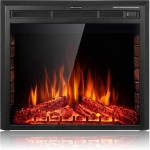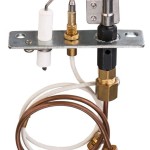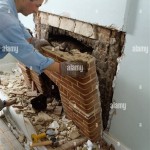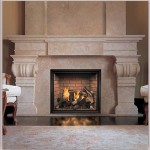Best Fireplace Wood Types
Choosing the right wood for your fireplace is crucial for maximizing heat output, minimizing smoke and creosote buildup, and enhancing the overall fireplace experience. Different wood species possess unique characteristics impacting burn time, heat intensity, and aroma. This guide explores some of the best fireplace wood types, highlighting their pros and cons to help you select the ideal fuel for your needs.
Hardwoods: For Heat and Durability
Hardwoods generally provide longer burn times, more intense heat, and less smoke than softwoods. They are denser, burn hotter, and produce fewer sparks, making them ideal for long winter evenings. Here are some popular hardwoods:
- Oak: Known for its long burn time, high heat output, and pleasant scent. It is a popular choice for its durability and consistent performance.
- Maple: Similar to oak, maple provides a long burn, intense heat, and a sweet aroma. It is known for its clean burn and minimal creosote buildup.
- Hickory: Hickory burns hot and produces a significant amount of heat, making it ideal for quickly warming a room. It also has a distinctive, smoky aroma.
- Ash: A good all-around wood, ash burns hot and clean, producing a moderate amount of heat. It is known for its long burn time and relatively low smoke output.
- Cherry: Cherrywood produces fragrant smoke and creates a cozy ambiance. While it burns quickly, it emits a sweet aroma that many find enjoyable.
Softwoods: For Quick Starts and Budget-Friendly Options
Softwoods are lighter and less dense than hardwoods, making them easier to ignite and burn quickly. They are often more affordable but produce less heat and burn faster. Here are some commonly used softwoods:
- Pine: A readily available and inexpensive option, pine burns quickly and produces a strong, resinous scent. It is ideal for starting fires but not for long burns.
- Fir: Similar to pine, fir is lightweight and easy to ignite. It produces a moderate amount of heat and a pleasant aroma that some find calming.
- Spruce: A good option for starting fires, spruce burns quickly and produces a moderate amount of heat. It is known for its distinctive, woodsy scent.
- Cedar: Cedarwood is known for its strong, aromatic smoke, often used in saunas or incense. It burns quickly and produces moderate heat.
Seasoned Wood: The Key to Clean and Efficient Burning
Seasoned wood, also known as "dry" wood, is crucial for a clean-burning fire. Freshly cut wood contains too much moisture, leading to inefficient burning, excessive smoke, and creosote buildup. Seasoned wood has been dried for at least six months to a year, allowing the moisture content to drop to below 20%. Here are some indicators of properly seasoned wood:
- Color: Seasoned wood has a darker, grayish color, while fresh wood is lighter and greener.
- Weight: Seasoned wood is lighter and easier to lift, while fresh wood is heavy and damp.
- Sound: When tapped, seasoned wood produces a hollow sound, while fresh wood sounds dull.
- Cracks: Seasoned wood often exhibits cracks on its surface, indicating moisture loss and proper drying.
By choosing seasoned wood, you ensure a clean fire with minimal smoke and creosote buildup. This not only improves your fireplace experience but also promotes safety and efficiency.

The Ultimate Firewood Comparison Find Best Wood For Your Needs Wintercocoon

Guide To Choosing The Right Firewood Forest Master

The Best Wood To Burn In A Burning Fire Pit Part 1

Power Equipment Direct We Make Technical S Simple Types Of Wood Burning Tips Tree Identification

Firewood Ratings Characteristics Of Commonly Used

Best Firewood Heat Values And Wood Burning Tips The Old Farmer S Almanac

Infographic Types Of Firewood Recoil Offgrid

The Best And Worst Types Of Wood For Burning In Fireplace Bob Vila

What Is The Best Wood To Burn In Your Fireplace Does It Matter

Best Firewood To Burn For Minimal Smoke And High Heat Goodland
Related Posts








